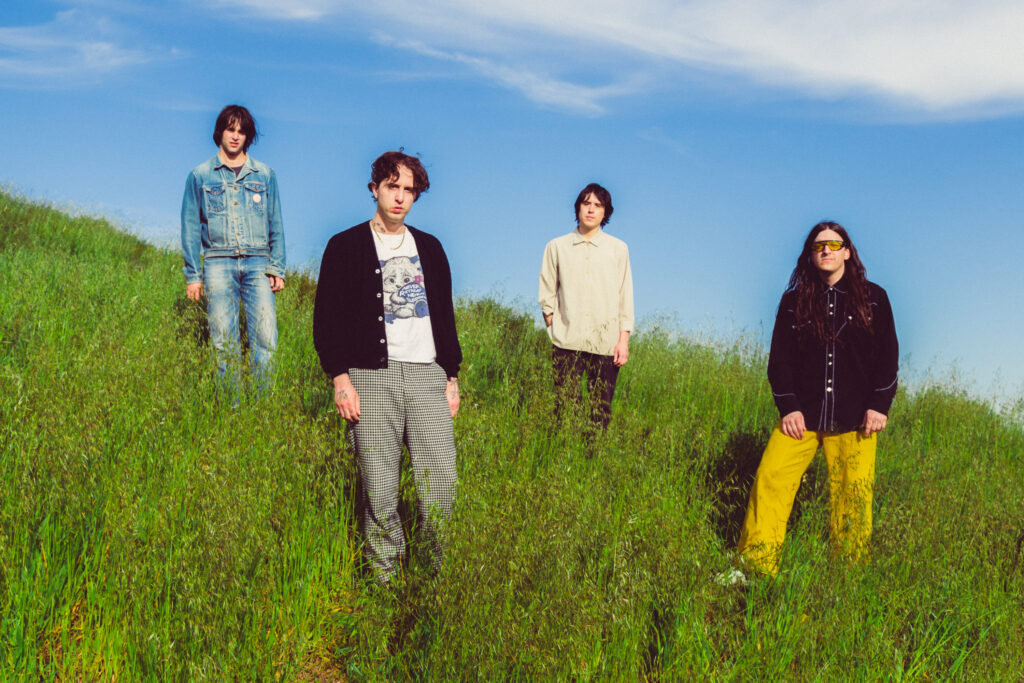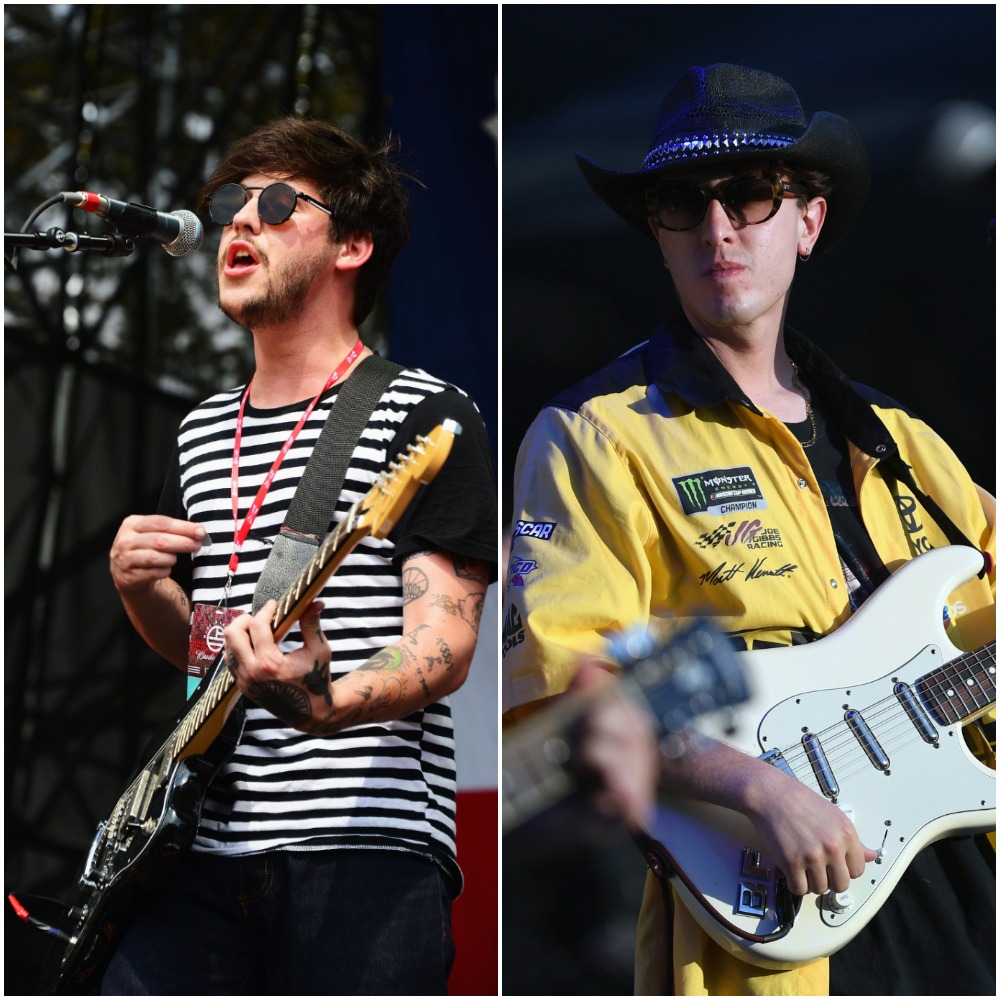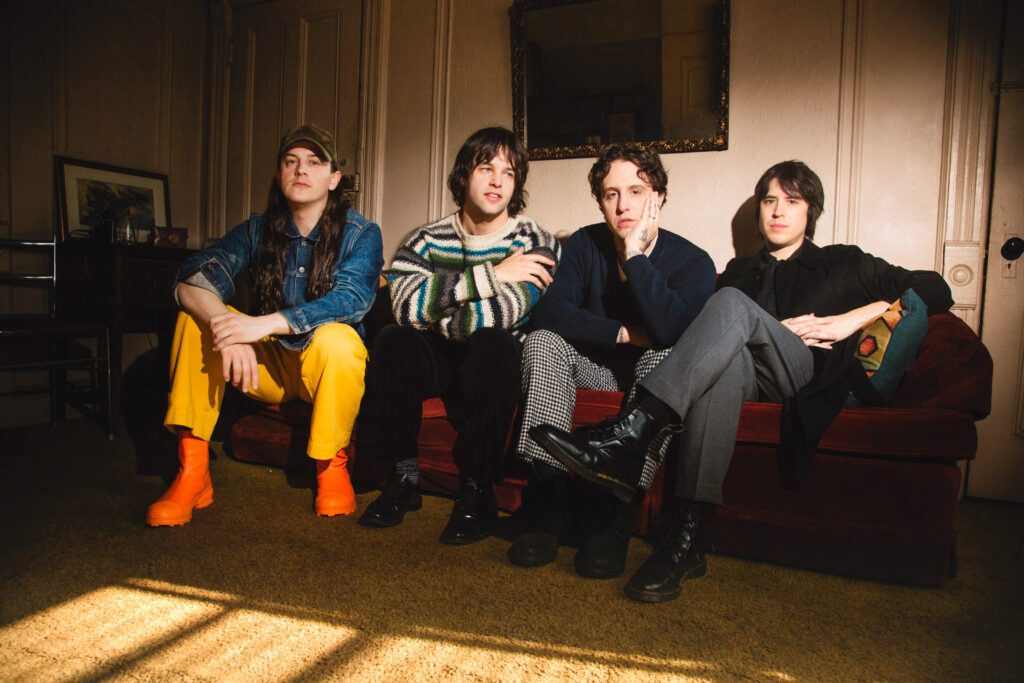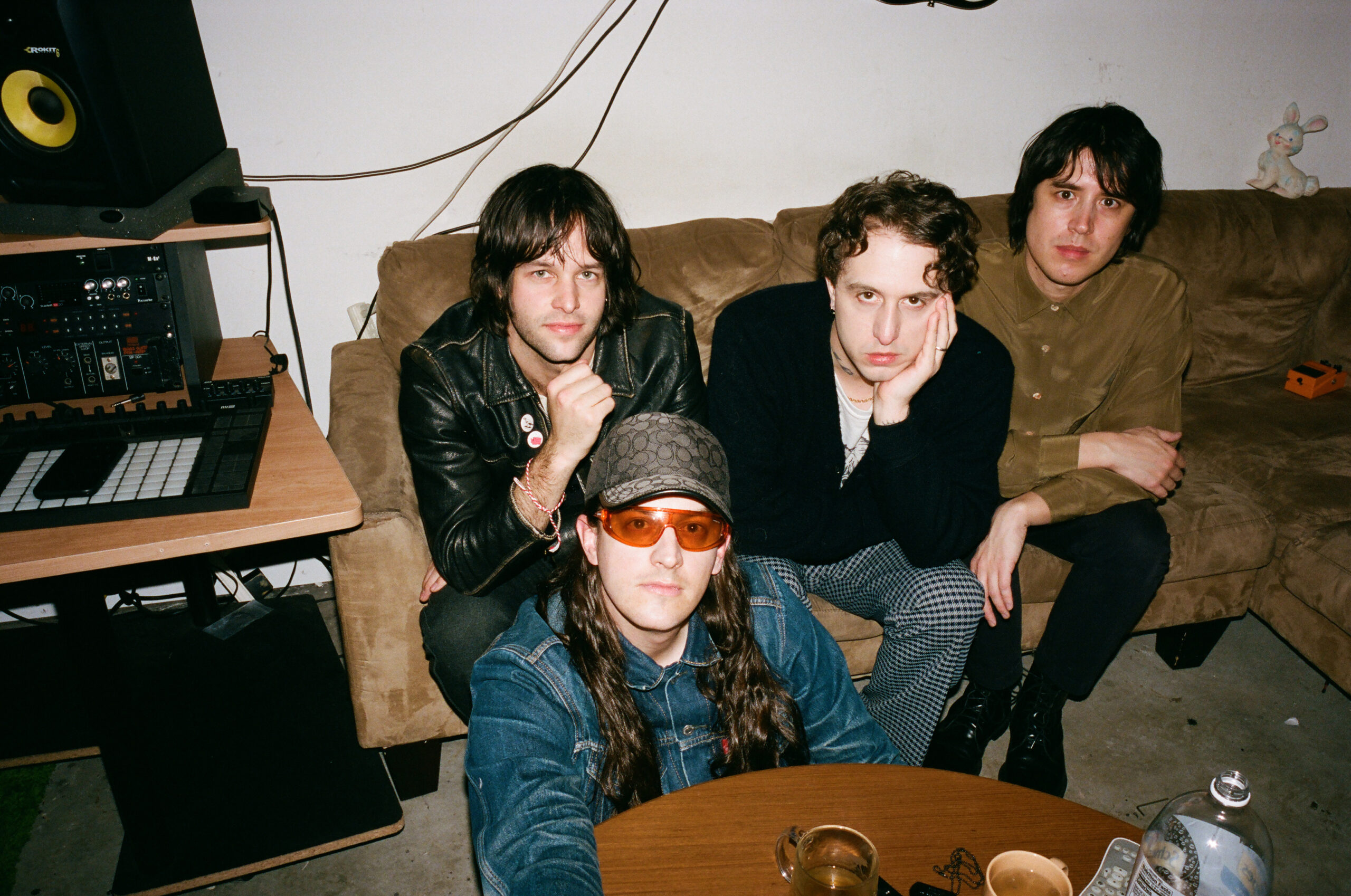Returns to form are tricky. Ostensibly, Beach Fossils playing to their strengths and banging out another album of jangly dream pop is the easiest option available, but it’s often an even riskier proposition than binning everything and starting from square one.
The Brooklyn-based band arrived with an instantly charming indie pop sound: home recordings of uncomplicated-but-interwoven guitar and vocal melodies with drums thrown in almost as an afterthought. Frontman Dustin Payseur wrote, performed, recorded, and produced everything on the band’s 2010 debut with an innate sense of his skills (pop melodies, self-harmonizing, laconic songwriting) and limitations (rudimentary drumming, a computer that would crash if he recorded too many tracks for one song). From there, the band expanded outwards, following jagged post-punk and plush baroque pop tangents, recording in studios, and becoming an actual band, with full-time members and everything.

It’s easy to observe that Beach Fossils have “improved” in many ways, but it’s not exactly a hot take to say that Payseur’s early recordings have a singular magic that the band haven’t seemed interested in recapturing. After the rapid one-two punch of the debut album and 2011’s What A Pleasure EP, the band lurched in a darker direction for 2013’s Clash The Truth, and then pulled out all of the stops for the more grandiose Somersault in 2017. Both albums achieved what they set out to do, but they also felt restless.
Bunny, the band’s fourth album, pulls off an incredible balancing act. Its unadorned guitar pop tickles that old-school Beach Fossils sweet spot while also bursting out of speakers with the lushness they achieved on Somersault. Payseur reverts back to a catchy, less-is-more lyrical approach, but also delivers the most sharp, clear-eyed songwriting of his career, addressing new wrinkles of maturity (chief among those being fatherhood) without losing his lackadaisical charm. In many ways, Bunny feels like a direct follow-up to Beach Fossils’ self-titled debut, albeit one arriving a decade-plus later.

Also Read
Wavves and Beach Fossils Announce Tour
A couple of weeks before Bunny’s release, we spoke with Payseur to pick his brain about the album, its creation, and his career as a whole.
SPIN: There’s a line in “Run To The Moon” about New York “tear[ing] you up and grind[ing] you down.” How has your relationship with the city changed since you first started recording there?
Dustin Payseur: The biggest thing that’s changed my relationship to the city is having a kid. You see a lot of the things that are difficult about living in the city through a new lens now. When I’m out with my daughter and I’m on the train and there’s piss and shit in the train station, before I would’ve been like, ‘Oh, that’s gross.’ But now it’s like, ‘Ah damn, how do I feel about my kid being exposed to something like this?’
I still love New York. It’s been my home for 15 years now, and I don’t see myself going anywhere else. It’s where all my friends are and it’s a constant source of inspiration for me, creatively and just as a person. Everybody knows that living in New York can be extremely difficult and can be a real grind, but it’s one of those things that you’re not supposed to talk about. You’re just supposed to tough it out. But the point of my lyrics, for me, it’s just always about honesty. That song is about my life before and after having a kid and wanting to better myself and make myself a better person after having a kid. A little bit of it was, inadvertently, giving her a little bit of advice too since she’s growing up in the city.
Were you writing this during the pandemic, or were there plans to release it earlier?
We were rushing to finish the album, it was supposed to be done in summer 2020. I was trying to get it done before my kid was born so I would have time to chill. But during lockdown [the band] weren’t able to see each other, it came to a grinding halt. I do think that pause in writing was a good thing, actually. We did have a lot of momentum and we were working really hard on the album, but then once we started getting together again our perspectives had really shifted. Originally, this album was very slow songs, there wasn’t much fast-paced material on there. All of the more upbeat songs came after, I think because we’d all been living such a bizarre, slow experience for so long, that we were like, ‘Alright, let’s try to do something a little more uptempo now.’
There’s a few lyrics on the album about the pace of life—“Nothing feels better than wasting time,” “Everybody’s chasing after someone else’s dream/I just wanna live my life”—are those accurate representations of your personal philosophy?
I’m in a lucky position that’s extremely rare. I’m not part of a regular nine-to-five grind. My life has periods of inactivity, and then extreme activity. When I’m home and I’m not on tour, I’m able to enjoy a lot of time off, where I can be extremely lazy and waste a lot of fucking time, which I do love, but I start to feel guilty after a while of not doing anything. Especially when it’s been years since a record, and I’m like, ‘Yeah, I have like, three songs,’ and here I am just laying on my couch not doing shit, which I do a lot of.
But I think that’s also something that having a kid has changed because now I have such little free time that when there is time for me to work, I’m grinding away and getting the work done. When I was doing the first couple records, I was still working retail, just folding T-shirts all day, and then I’d come home and either record songs or go play a show, then get two-to-four hours of sleep before my next shift. That lit a fire under my ass. It is nice to have some kind of fire under you to keep you going because my natural state is just laying in bed watching Scooby-Doo on my phone.

You’ve also been busy running a label [Bayonet Records]. Do you get a lot of personal fulfillment out of that?
It’s amazing. When I was first living in New York [City] and making music and sending my music out to record labels, and just not hearing anything back, or getting rejection letters, it was brutal. Then, all of a sudden, [Brooklyn-based independent record label] Captured Tracks came through and kind of saved my life and gave me a space to work and create and be free. There was also such a great community that happened quickly with that label. All the people on the label, we became best friends because we shared the same experience at the same time— putting our first records out, touring. When I decided to create Bayonet, I didn’t want to leave this idea of family behind, I was inspired to create my own new community and new feeling of family. And now I see that the artists on Bayonet are friends, and some of them have moved in together, which is so cool to see happening again. I’ve now been lucky enough to create this space where artists can be creative, feel free, and make what they want.
It’s funny you mention the parallels between early 2010s Captured Tracks and modern-day Bayonet, because I just saw your quote about the cyclical nature of trends in NYC music scenes in the recent GQ profile of the Dare. Do you see your career following a similar pattern?
Kind of. I’ve always viewed Beach Fossils as a little bit of an outsider thing. We’re very much a part of New York, but we don’t necessarily fit like a puzzle piece of one particular genre or scene. I want the whole thing to be fluid, and we were never really considered shoegaze, or post-punk revival, or dream pop, or anything like that—we have elements of all of that, and inspiration from all of that, but I don’t think we have anything that’s directly that.
I see what you’re saying, stylistically speaking, but the early Captured Tracks bands—you, Wild Nothing, Craft Spells, Widowspeak, etc.— got grouped together by music journalists, with good reason I think: being friends, playing shows together, but also some similar sounds.
We were definitely all drawing inspiration from similar things, we were listening to the same records, but I think what we were all taking from it was completely different elements. It was all splintering out.
You expanded your sound quite a bit on Somersault, with all of those baroque flourishes. Was there a desire to pare back that approach for Bunny?
I’m always wanting to do the opposite of what I’ve done before. We’d done the self-titled album and the What A Pleasure EP, which were more gentle and dreamy, then I wanted to do something that represented the live show more, and had more of the elements of punk and post-punk in it, so we did Clash The Truth. Then the opposite of that was something grand—the opposite of the whole minimal idea that Beach Fossils was—leaning into the baroque pop influences with strings and saxophone and pedal steel and harpsichord, seeing how far we can take this sound. When we started working on [Bunny] I didn’t know what to do at first, but what felt the most natural was to go minimal, back to the original Beach Fossils sound, but pushing it in terms of song structure, and pushing ourselves to create something that had more pop sensibilities that we had ignored in the past.
Yeah, some of those hooks—was it a challenge for you to pump up the pop aspects of your writing style?
Honestly it’s weird, because I don’t listen to a lot of pop music, but my natural instinct when I’m writing a song is to make something very pop. I think I fought against that instinct for most of the Beach Fossils career, because I don’t even necessarily love music that’s like that, so why is it that I write that way? But with this one I allowed myself to lean into that more, and felt more comfortable with it. I just feel like the band’s been around long enough; there’s no point in trying to prove that we write anti-pop songs. You know, what the fuck’s the point? Let me just lean into it and have fun with it.




